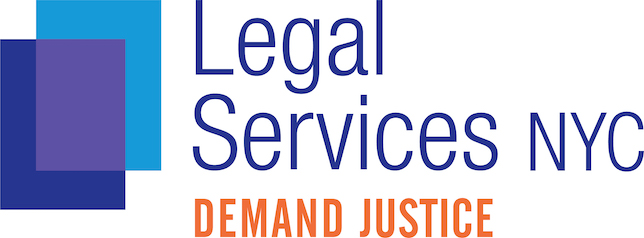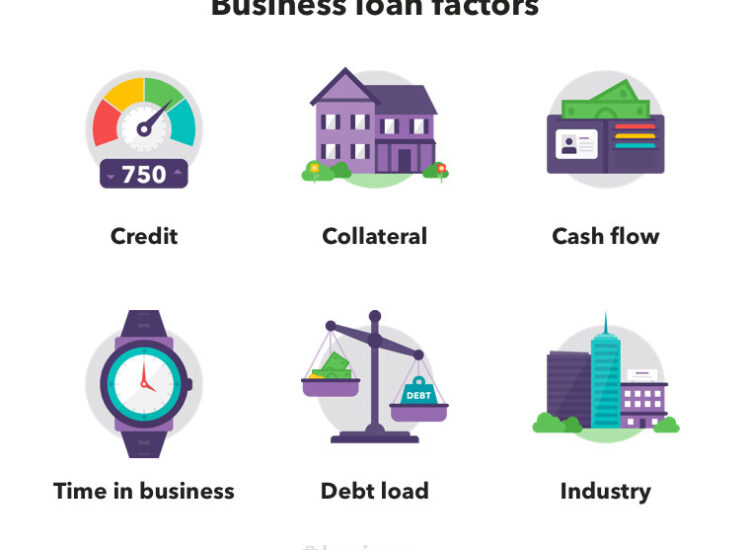Many small business owners face unexpected financial shortfalls. The payday loan business offers rapid access to capital, but these options often come with high costs and complex repayment structures. Understanding the nuances of merchant cash advances and Automated Clearing House (ACH) loans is crucial for navigating this challenging financial landscape. This guide will delve deep into the payday loan business, its various components, and what small business owners need to know to make informed financial decisions.
Toc
- 1. What is the Payday Loan Business? Exploring Alternative Business Financing
- 2. Merchant Cash Advances (MCAs): A Deep Dive into Business Financing
- 3. Related articles 01:
- 4. Automated Clearing House (ACH) Loans: An Alternative Financing Strategy
- 5. Selecting the Right Payday Loan Business Provider
- 6. Alternative Financing Options for Small Businesses
- 7. Starting a Payday Loan Business: Key Considerations
- 8. Planning for a Business Cash Advance: A Step-by-Step Guide
- 9. Current Trends in the Payday Loan Industry
- 10. Frequently Asked Questions About Business Payday Loans
- 11. Conclusion: Navigating the Payday Loan Business Landscape
- 12. Related articles 02:
What is the Payday Loan Business? Exploring Alternative Business Financing

The payday loan business represents a unique financial ecosystem designed to provide rapid capital solutions for small businesses facing immediate cash flow challenges. Unlike traditional bank loans, these financing options focus on flexible, fast-funding mechanisms that cater to businesses with urgent monetary needs.
Key Characteristics of Business Payday Loans
Payday loan business models typically feature several important characteristics:
- Rapid Funding: Many payday loan providers can disburse funds within 24 to 48 hours, making them an attractive option for businesses facing urgent financial needs. However, while speed is a benefit, it can also lead to hasty decisions without a thorough evaluation of terms and costs.
- Flexible Repayment Structures: Unlike traditional loans that require fixed monthly payments, payday loans often tie repayments to the business’s daily or weekly sales, which can help manage cash flow during slower periods.
- Minimal Documentation Requirements: Many payday loan providers do not require extensive paperwork. However, businesses still need to provide proof of revenue and legitimacy, potentially including tax returns or bank statements, which may complicate access to funds.
- Alternative Credit Assessment Methods: Payday loan businesses often consider factors such as sales volume and business performance rather than relying solely on credit scores, which can benefit those with less-than-perfect credit histories.
Merchant Cash Advances (MCAs): A Deep Dive into Business Financing
Merchant cash advances represent a critical component of the payday loan business landscape. These financial instruments provide businesses with immediate capital in exchange for a percentage of future sales revenues.
How MCAs Work in the Business Financing Ecosystem
- Funding Mechanism:
- Businesses receive a lump-sum payment upfront.
- Repayment is based on a predetermined percentage of daily credit card sales, allowing for a flexible repayment model that aligns with revenue fluctuations.
- Eligibility Considerations:
- MCAs typically have less stringent credit requirements, making them accessible to a broader range of businesses.
- Lenders focus on the business’s revenue potential rather than just credit scores, allowing those with steady sales to qualify.
Advantages and Potential Risks of MCAs
Pros:
- Quick Access to Capital: Businesses can often receive funding within a day, which is crucial for urgent financial needs.
- Flexible Repayment Terms: Since repayments are based on sales, businesses experiencing fluctuations in revenue may find this structure manageable. During slower sales periods, the repayment amount decreases, easing financial strain.
- No Collateral Required: Unlike traditional loans, MCAs do not require businesses to put up collateral, reducing risk for business owners.
Cons:
- Higher Overall Financing Costs: The factor rates associated with MCAs can lead to effective annual percentage rates (APRs) that exceed traditional lending rates significantly, sometimes reaching up to 350%. For instance, a business borrowing $10,000 through an MCA at a factor rate of 1.4 would owe $14,000 total, translating to an APR far above what a traditional bank loan might offer. These high costs can create long-term financial challenges for a business.
- Potential Cash Flow Disruptions: Daily or weekly repayments can strain cash flow, especially during slow sales periods. If sales are lower than expected, businesses may struggle to meet their repayment obligations, leading to a cycle of debt.
- Complex Fee Structures: The costs associated with MCAs can be difficult to understand, with various fees that may not be immediately apparent. This lack of transparency can lead to unexpected financial burdens.
Real-World Examples of MCAs
Consider a small restaurant that typically relies on a steady stream of credit card sales. After an unexpected equipment malfunction, the owner seeks a merchant cash advance to cover repairs. The restaurant receives a lump-sum payment, allowing it to fix the equipment quickly. However, as the restaurant enters a slow season, the daily repayments become burdensome, leading to cash flow challenges.
In contrast, a successful boutique that experiences consistent sales may benefit from an MCA by using the funds to invest in inventory, allowing for growth without the constraints of traditional loan repayments.
Automated Clearing House (ACH) Loans: An Alternative Financing Strategy
ACH loans represent another critical avenue within the payday loan business model. These loans differ from MCAs by drawing repayments directly from a business’s bank account based on overall revenue performance.
Unique Features of ACH Loans
- Direct Bank Account Withdrawals:
- Repayments are automatically deducted from the business’s bank account at regular intervals or as a percentage of sales, providing a clear repayment timeline.
- Based on Comprehensive Business Revenue:
- Unlike MCAs that rely solely on credit card sales, ACH loans consider the overall revenue of the business, which can provide a more accurate assessment of repayment capability.
- More Predictable Repayment Schedules:
- The structured repayment can help businesses plan their finances more effectively compared to the variable nature of MCAs. Knowing the repayment amount in advance allows for better budgeting and cash flow management.
Advantages and Disadvantages of ACH Loans
Advantages:
- Potentially Lower Costs: While still higher than traditional loans, ACH loans may offer slightly better rates than MCAs, reducing the overall financial burden on the business.
- Fixed Repayment Schedule: The structured repayment can help businesses plan their finances more effectively, allowing for better budgeting and cash flow management.
Disadvantages:
- Automatic Withdrawals: Regular deductions can impact cash flow, particularly if sales dip unexpectedly. Businesses must ensure they maintain sufficient funds in their accounts to cover these withdrawals, or they may face overdraft fees.
- Risk of Default: If a business cannot cover the scheduled withdrawals, it may find itself in a precarious position, leading to further financial complications and additional debt.
Case Study: A Successful ACH Loan Experience
Imagine a small e-commerce business that experiences seasonal sales fluctuations. The owner applies for an ACH loan to fund a marketing campaign during the slow season. With predictable repayment terms, the business can effectively manage its cash flow, knowing exactly how much will be deducted from its account each month. This predictability allows the owner to plan for future expenses and avoid cash flow issues.
Selecting the Right Payday Loan Business Provider
When exploring business payday loans, consider these critical selection criteria:
Due Diligence Checklist
- Verify Provider Reputation: Research potential lenders online, looking for reviews and ratings to ensure they have a solid track record.
- Compare Factor Rates: Understand how different providers calculate costs and ensure you are getting a fair deal.
- Understand Repayment Terms: Ensure you know the repayment structure, including how often payments are deducted and any potential penalties for late payments.
- Assess Potential Hidden Fees: Ask about all fees associated with the loan, including processing fees, origination fees, and any others that may apply.
- Check Lender Licensing and Registration: It’s crucial to confirm that the lender is licensed and registered with relevant state and federal authorities. You can verify this information through state banking departments or the Consumer Financial Protection Bureau (CFPB) websites.
Red Flags to Watch For
- Extremely High Factor Rates: If a lender offers rates significantly higher than the industry average, it may be a sign of predatory lending practices.
- Confession of Judgment Clauses: Beware of contracts containing clauses that allow lenders to obtain a judgment against your business without prior notice if you default.
- Aggressive Collection Practices: Research how lenders handle collections and ensure they follow ethical practices.
- Lack of Transparency: If a lender is unwilling to provide clear answers to your questions or seems evasive about costs, consider looking elsewhere.
Questions to Ask Potential Lenders
- What are your factor rates, and how are they calculated?
- Can you provide a breakdown of all fees associated with the loan?
- What are the specific repayment terms and conditions?
- How do you assess creditworthiness, and what documentation will I need to provide?
- What happens if I am unable to make a payment on time?
Alternative Financing Options for Small Businesses
While the payday loan business offers quick solutions, consider these alternatives:
Financing Alternatives
- SBA Loans:
- Small Business Administration (SBA) loans provide a reliable funding source with lower interest rates and longer repayment terms compared to payday loans. These loans can be a significant advantage for businesses looking to invest in growth while managing cash flow effectively.
- Business Lines of Credit:
- A business line of credit provides a flexible funding solution that allows you to borrow as needed. This option often has lower interest rates but typically requires a good credit score for approval. The flexibility of drawing funds only when necessary can be a significant advantage for businesses with variable cash flow needs.
- Invoice Factoring:
- Invoice factoring allows businesses to sell their unpaid invoices to a factoring company in exchange for immediate cash. This method can provide funds based on existing receivables rather than future sales, making it a lower-risk option for businesses facing cash flow issues. The factoring company typically collects payments directly from the customer, relieving the business of some administrative burdens.
- Short-Term Business Loans:
- These loans typically offer lower interest rates than cash advances, with structured payments that can help businesses manage their cash flow better. However, they often come with stricter eligibility requirements. Business owners may need to provide collateral or demonstrate a more extended credit history to qualify.
- Business Credit Cards:
- Business credit cards can offer a convenient way to manage expenses and build credit. While they often come with rewards programs, the interest rates can be high if balances are carried month to month. It’s essential to manage credit card debt carefully to avoid falling into financial difficulties.
Starting a Payday Loan Business: Key Considerations
For entrepreneurs interested in entering the payday loan business, it’s essential to approach the industry with a solid understanding of the financial landscape and regulatory environment.
Business Plan Development
- Research Regulatory Requirements: Understand the legal landscape for payday lending in your area, including licensing requirements and consumer protection laws.
- Understand Financial Regulations: Familiarize yourself with the laws governing lending practices, including interest rate caps and disclosure requirements.
- Develop Risk Management Strategies: Identify potential risks associated with lending, such as borrower defaults, and create strategies to mitigate these risks.
- Create Comprehensive Funding Models: Develop financial projections that consider various scenarios, including worst-case scenarios, to ensure your business remains viable.
Compliance and Legal Considerations
- State-Specific Lending Regulations: Each state has its own set of laws governing payday lending, so it’s crucial to understand and comply with these regulations.
- Consumer Protection Laws: Familiarize yourself with laws designed to protect consumers from predatory lending practices and ensure your business adheres to these guidelines.
- Licensing Requirements: Obtain the necessary licenses to operate legally in your state and any other states where you plan to lend.
- Ethical Lending Practices: Commit to ethical lending practices that prioritize the financial well-being of borrowers, fostering trust and long-term relationships.
Planning for a Business Cash Advance: A Step-by-Step Guide
If you decide that a cash advance is the right choice for your business, careful planning is essential. Here are some steps to guide you through the process:
Assessing Your Needs
Understanding your specific cash flow situation and determining how much funding you truly need is the first step in the process. An accurate assessment will help you choose the best financing option. Consider factors such as:
- Current cash flow needs
- Projected sales over the repayment period
- Any upcoming expenses or investments
Developing a Repayment Plan
Creating a realistic repayment plan that aligns with your sales projections is vital. Consider potential fluctuations in revenue to ensure that your plan remains feasible under various scenarios. A well-structured repayment plan can help prevent cash flow issues and ensure timely payments.
Financial Projections
Accurate financial projections can help you evaluate the feasibility of repaying the advance. Having a clear picture of your expected income can guide your decision-making process. Utilize historical sales data to create projections that reflect seasonal trends and other factors that may impact your revenue.
Improving Your Credit Score
Improving your credit score can open up more favorable financing options in the future. Focus on managing debts responsibly and paying bills on time to enhance your creditworthiness. Consider seeking professional advice on credit management if needed, as a higher credit score can lead to lower interest rates and better terms.
Current Trends in the Payday Loan Industry
The payday loan industry is evolving, driven by technological advancements and increasing regulatory scrutiny. Fintech platforms are increasingly being used to provide business cash advances, offering convenience and speed in the application process. However, this trend has also attracted regulatory attention, with lawmakers proposing new legislation aimed at protecting consumers from predatory lending practices. For example, some states have begun to enforce stricter guidelines on interest rates and lending practices, impacting how payday loan businesses operate.
Frequently Asked Questions About Business Payday Loans
As you navigate the payday loan business, you may encounter several common questions. Here are some answers to help you along the way:
- Can I get a business cash advance with bad credit? Yes, businesses with poor credit can still qualify, but expect to pay higher costs. Lenders may consider alternative factors such as sales volume when assessing your application.
- How quickly can I obtain funding? Many providers offer funding within 24 to 48 hours of application approval. The speed of funding can be a crucial factor when time is of the essence.
- What documentation is required? Generally, you’ll need to provide bank statements, processing statements, and basic business information. Being prepared with the necessary documents can expedite the application process.
- Are there any risks associated with cash advances? Yes, cash advances can be expensive and may lead to cash flow issues if not managed properly. It’s essential to carefully evaluate your ability to repay the advance before proceeding.
- What should I look for in a cash advance provider? Look for transparency in terms, reasonable factor rates, and a solid reputation. Reading reviews and asking for recommendations can help you find a trustworthy provider.
Conclusion: Navigating the Payday Loan Business Landscape
The payday loan business offers unique financing opportunities for small businesses but requires careful navigation. While these financial instruments provide rapid access to capital, they come with complex considerations and potential risks.
Business owners must:
- Thoroughly understand financing terms
- Compare multiple providers
- Consider alternative funding sources
- Develop comprehensive repayment strategies
By approaching business payday loans with strategic insight and careful planning, entrepreneurs can leverage these financial tools effectively while mitigating potential drawbacks. Understanding the intricacies of the payday loan business is essential for making informed decisions that will benefit your business in the long run.









